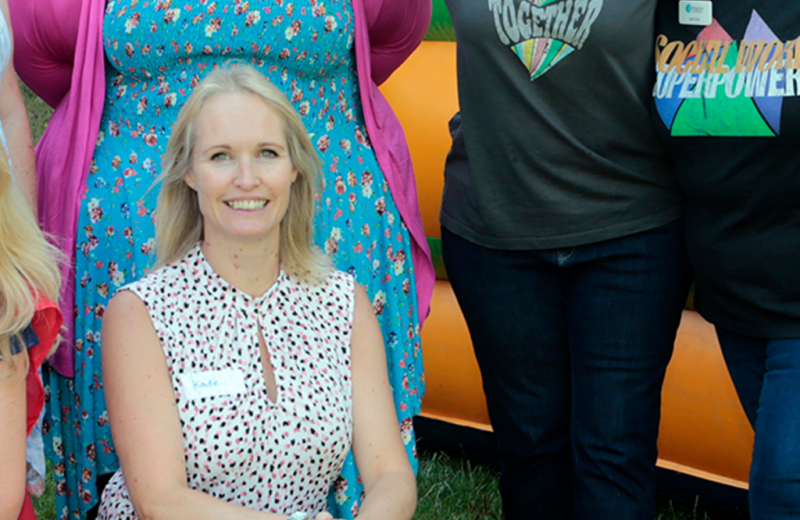Kate Patel is Head of Fostering and Adoption at Diagrama. She has more than 20 years’ experience in social care, qualifying as a social worker in 2000. Before coming to Diagrama, initially as a panel advisor she worked for a number of local authorities, including Slough Children’s Services Trust where she was part of the family finding team and also latterly agency advisor overseeing the assessments of fostering and adoption assessments.
What is foster care?
Fostering is all about making the best out of a bad situation. It can be extremely harrowing on the front line of adoption and fostering. The realisation that it’s not always best for a child to be with their birth family is a complex one to arrive at, full of emotion and issues. The next best option for those children is a long-term family, which has to be a good alternative, which is where we come in.
There are lots of sad stories of the care system not working and letting young people down. Children who come to us, we just want their situation to improve quickly and in the best possible way – that’s what foster care is all about, in essence.
Are there lots of children out there needing foster care?
It’s more challenging than it has ever been to find foster carers. There’s a cost of living crisis and it’s very tough for people. People don’t do it for the money – it’s a 365 day a year job and there are not a limitless supply of people who can do it well. The best foster carers are absolutely incredible people. It goes above and beyond normal parenting. We’re trying to find extra special people.
There are thousands of children out there looking for a home, temporary or permanent. Local authorities will only come to independent fostering agencies like Diagrama when they’ve exhausted all other options and ask us if we can help. We’re spread quite thinly across the south east of England. It’s difficult because foster placements should be relatively close to their birth families.
They might be at a good school or have a support network aside from their parents so moving them away from that is a real wrench but sometimes there’s no alternative. There’s so much to take into account when we’re matching people up, it’s a very complex process.
Is there such a thing as an ideal foster carer?
There’s no such thing as the ideal background for a foster carer, they’re from all backgrounds and all walks of life. There’s a huge need for foster carers from different ethnic groups at the moment for example. The rewards for doing it are enormous.
We’ve had a case recently of a teenager whose adoption sadly broke down. New foster carers stepped in – it was their first placement – and they have been fantastic. The teenager wrote them a letter saying they had made him the man he is, which was so wonderful.
Foster carers usually have altruistic motives. Most foster carers are parents themselves, perhaps their own kids have gone off to university or work and the parents have decided that they’ve got more to give. I’m a tremendous admirer of that quality. But you don’t have to be a parent to be a foster parent. They could be grandparents who see the value of family life and say ‘We can welcome them in’. They can cope with challenging behaviour – that’s difficult to do on your own.
Is overseeing the fostering process traumatic?
You must come across tough situations every day. At Diagrama, I work with like-minded colleagues and we support each other. We are obviously exposed to upsetting situations so we act as our own support network. Diagrama is staffed by passionate, committed individuals and that’s not necessarily the case everywhere in the world of fostering.
Their commitment and drive really makes a difference because you need knowledge and empathy to make the process work. Placements are so complex and they aren’t always right so we have to carefully plan how each fostering placement can work.There a really delicate balance there and you need the right group of people working on that. We are a healthy safe space for each other.
How does the fostering process work?
Lots of people can be as accepted to be assessed as foster carers but that doesn’t automatically mean they will be approved. People can meet all the criteria – over 21, no criminal convictions, spare bedroom –but that doesn’t mean they have got what it takes. Families who put themselves forward and find themselves without a placement could claim we’re discriminating against them but we would never do that.
A paper application doesn’t tell you everything, it’s complicated. Because we’re an independent fostering agency, local authorities come to us when they have a child who needs a temporary home. We have a list of approved foster carers we can then call upon. A social worker might encourage potential foster carers to stretch themselves with a placement and other times they might discourage them if they can see that it might not be a strong match. That’s where their expertise comes in. Sometimes a placement has to be ended because it isn’t working but that’s very rare. That might be nobody’s fault, it just happens. Occasionally, foster carers will resign because we can’t find a suitable placement for them and that becomes a resource that we’ve lost. Again, that’s very rare.
What one change would you make to the fostering system in this country?
The adoption process has a system called Link Maker which helps to link prospective adopters with children who need adoption. It covers the whole of the UK and connects people because it’s a database of live information. It’s used by pretty much every local authority in the UK and is responsible for the majority of regional and national adoptive placements. There is the capacity to use this for long term fostering matches but it really isn’t utilised in the way that it could be. I would change this if I could, it could make a massive difference.
What sets Diagrama apart from other fostering agencies?
At Diagrama, we provide a high quality service and we bring a massive amount of passion to everything we do. We stage regular events for our foster carers to bring them together so they can share experiences and information. We’ve just had one of our carers’ picnics which brings everyone together and is a wonderful event.
The staff at Diagrama are so committed and passionate, they always go the extra mile. I always enjoyed being on the ground doing the social work and never saw myself doing that management side of things – but the team at Diagrama inspire me every day. They don’t just do the practical side of the job – they go away and they do their research, they know when to get involved and what questions to ask at every turn. And the admin team are equally good at their jobs – none of this works if people aren’t paid on time.
Young people will always need fostering. We need people who are empathetic and compassionate, people who know that birth parents aren’t evil, they just might be having a hard time. Fostering is an opportunity to change a life. If you do it, you offer safety and security to a young person who perhaps has never known those things.
But it’s not just that – foster carers also bring fun and guidance into the lives of the children in their care. It’s a tremendous task to take on. I’ve met so many people from a host of different backgrounds who make it look easy. It’s an amazing gift to be able to give – if you’re interested or have ever thought of fostering, please come and talk to us and get in touch by calling 0800 8021910 or fill in our short form.






